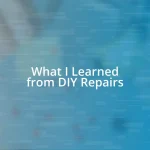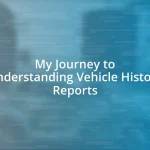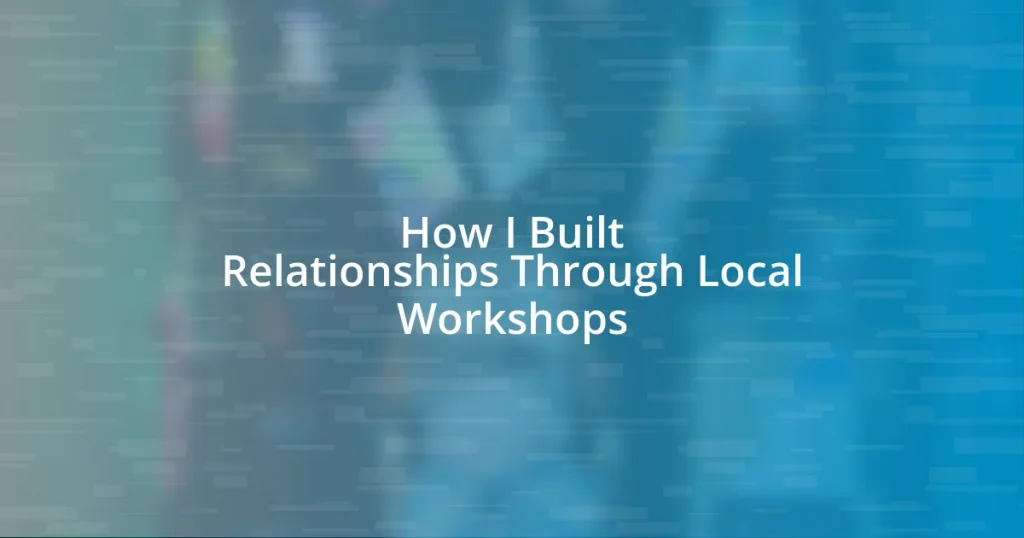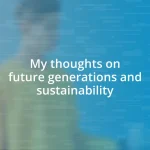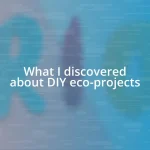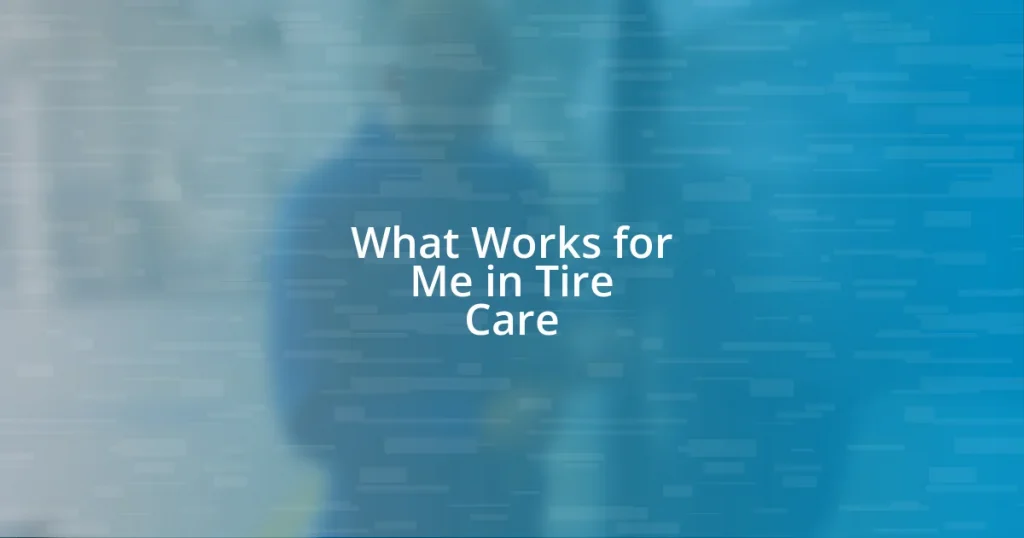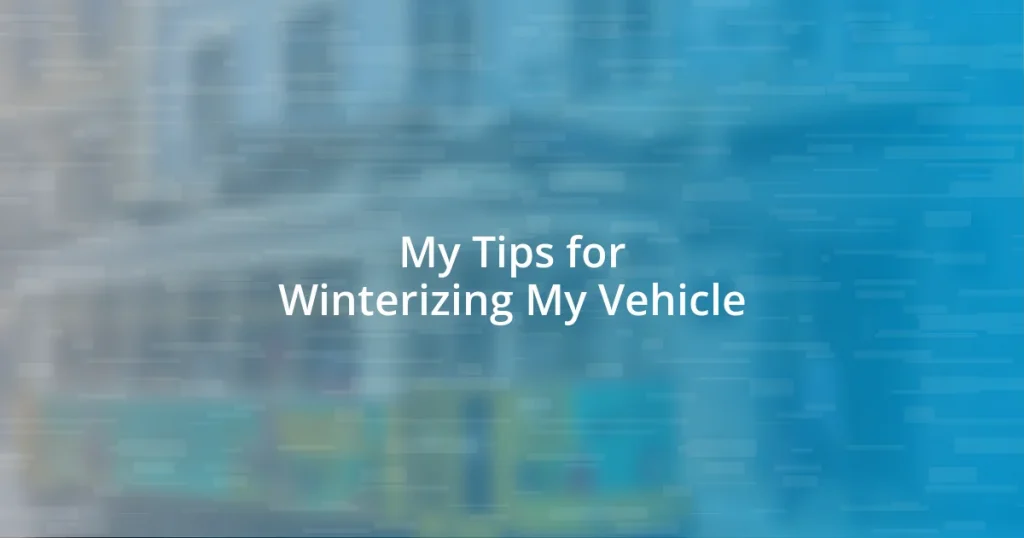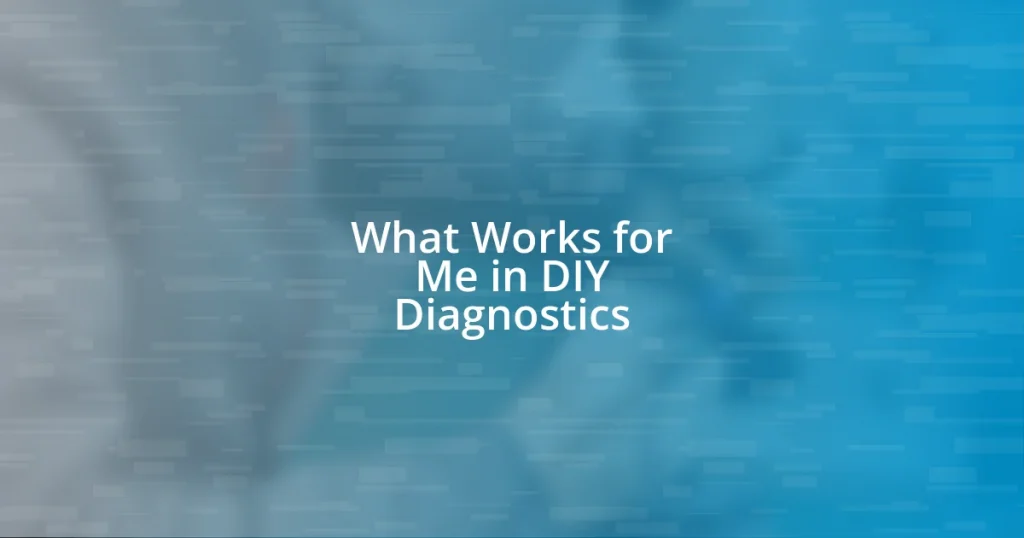Key takeaways:
- Workshops foster community connections, encouraging vulnerability and support, leading to lasting relationships.
- Identifying target audience needs and interests is crucial for selecting engaging workshop topics that resonate with participants.
- Following up after workshops through thank-you notes and creating resource-sharing platforms nurtures relationships and fosters a sense of community.
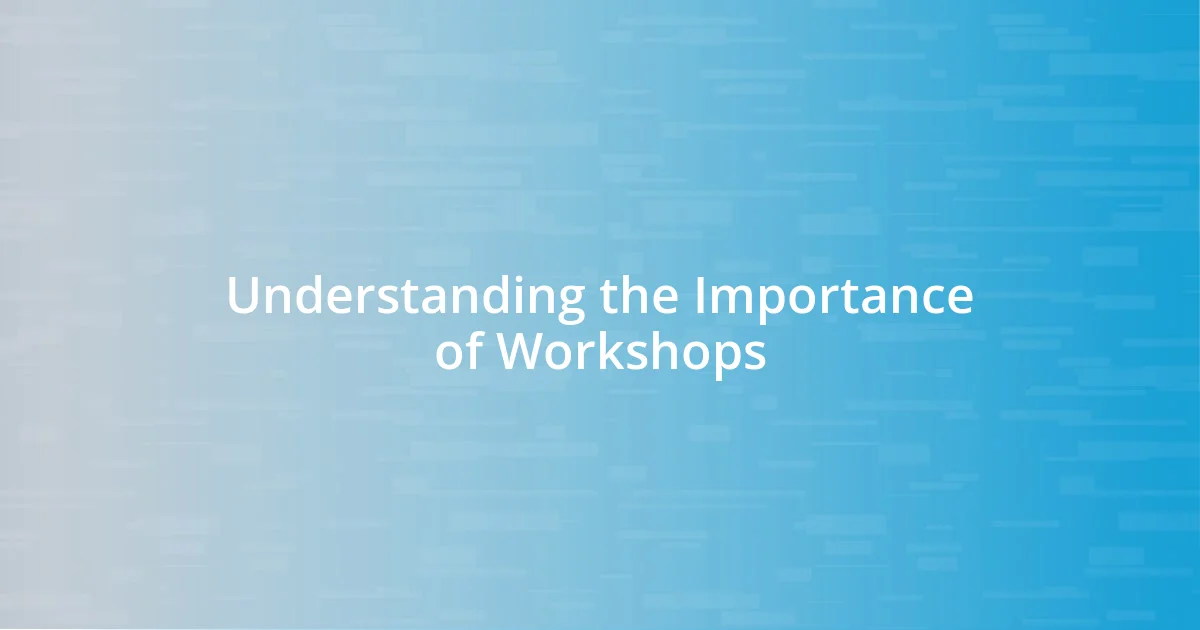
Understanding the Importance of Workshops
Workshops are more than just skill-building sessions; they are vibrant community hubs. I remember attending my first local workshop—it was focused on creative writing, and as I walked into the room, the excitement was palpable. I could feel the energy of so many eager individuals ready to share and learn, and it struck me how powerful it can be to connect with others who share similar passions. Have you ever experienced that same thrill of collaboration?
What I find particularly compelling about workshops is their ability to break down barriers. Everyone is there for a shared purpose, creating an atmosphere where vulnerability feels natural. In one workshop, I found myself sharing my fears about my writing with strangers, and their support was overwhelming. This collective kindness allowed me to flourish, reinforcing the idea that we grow best in community. Don’t you think it’s incredible how a simple gathering can spark such profound connections?
Furthermore, workshops provide a unique opportunity for networking that goes beyond typical professional events. In a calm environment, I’ve met individuals I now consider friends and mentors—people who have profoundly influenced my journey. This deep-seated bond, fueled by collaboration, often leads to lasting relationships that extend beyond the workshop walls. Isn’t it remarkable how these moments can change our lives in ways we never anticipated?
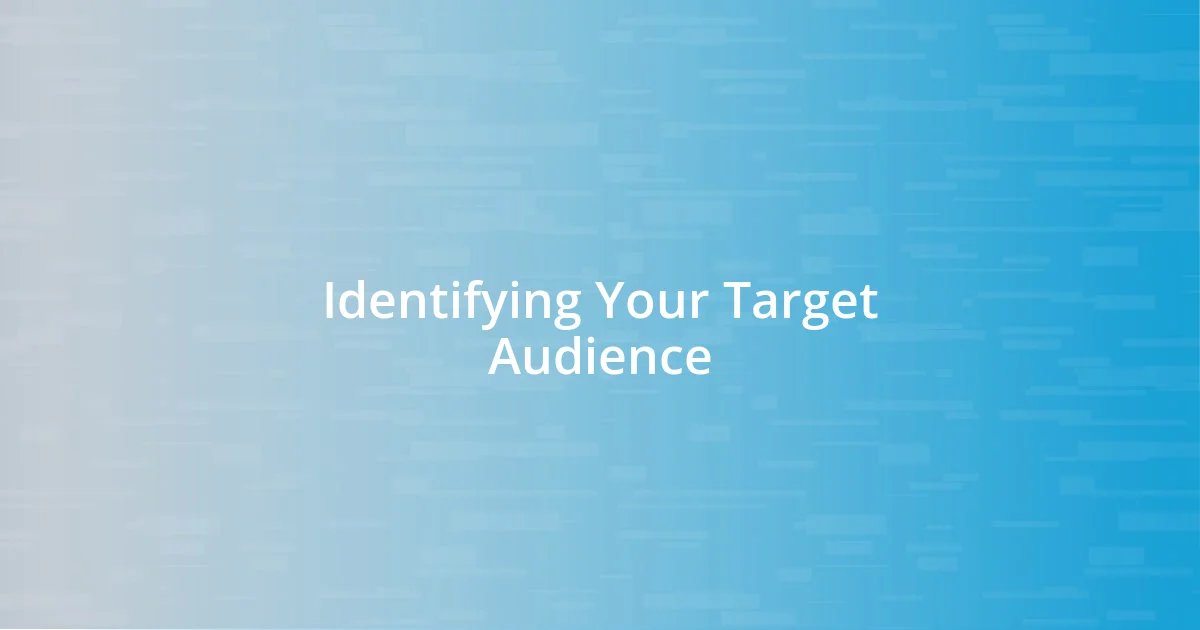
Identifying Your Target Audience
Identifying your target audience is crucial for the success of any workshop. I remember when I first started organizing local events, I spent a lot of time reflecting on who would benefit most from the topics I wanted to cover. Picture this: I created a simple survey and shared it with friends and online communities to gauge their interests. The responses were enlightening; they revealed not just what people wanted to learn, but also the specific challenges they faced. This approach helped me tailor my workshops to meet real needs, making the experience much more valuable for everyone involved.
Consider the following aspects to help you identify your target audience:
- Interests and Hobbies: What are their passions? This helps in selecting workshop topics.
- Demographics: Age, profession, and location can guide your outreach efforts.
- Pain Points: What challenges do they face that your workshop can address?
- Experience Level: Are they beginners, intermediates, or advanced learners in the subject?
- Networking Goals: Are they looking to connect with like-minded individuals or industry professionals?
Understanding these elements can transform your workshops from basic gatherings into meaningful experiences that resonate deeply with attendees.
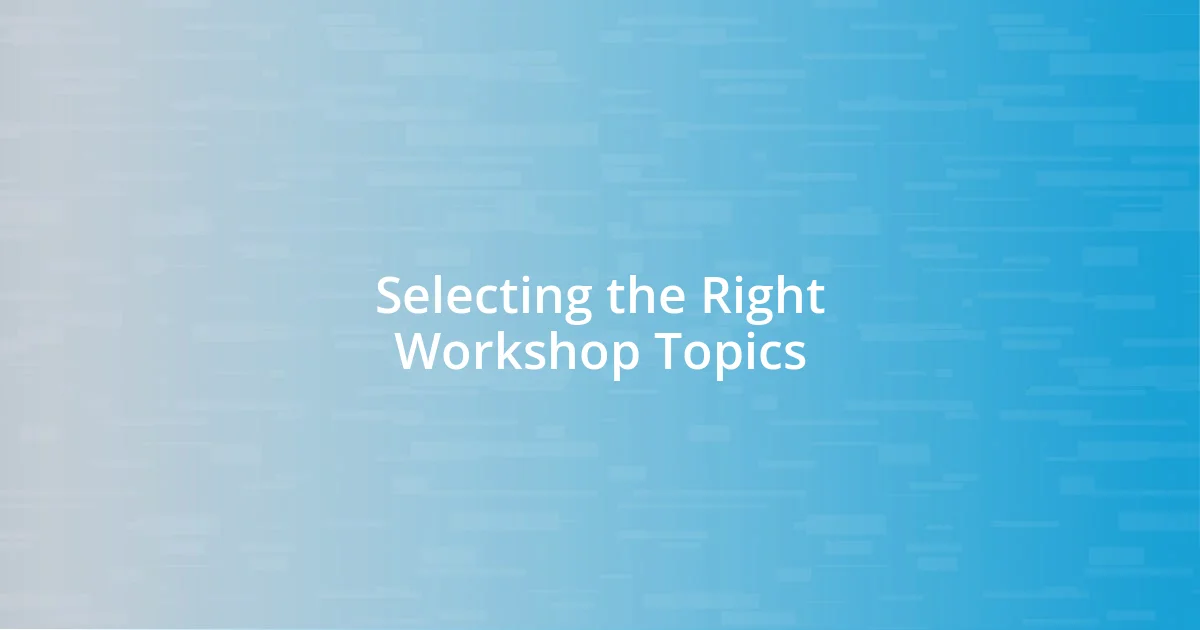
Selecting the Right Workshop Topics
Selecting the right workshop topics is a delicate balance of personal passion and audience demand. I recall my initial experiences when I selected topics simply based on my interests—this excited me, but I soon realized the importance of aligning topics with what my audience craved. A defining moment for me was when I reached out to past attendees and asked them directly what they wanted. Their feedback transformed my approach; incorporating their interests made the sessions not just informative, but genuinely engaging.
When considering workshop topics, think about current trends and local community interests. For instance, I once proposed a workshop on digital marketing, largely because it was trending. Still, many participants were more inclined towards hands-on crafts. This taught me that timing and relevance matter greatly. So, I began blending my interests with their preferences by incorporating digital mediums into crafting workshops—this not only satisfied attendees but also sparked lively discussions and collaborations.
It’s also essential to tap into the emotional aspects of the topics. I remember leading a workshop on mindfulness, where participants openly shared their experiences and struggles. The atmosphere turned into a safe haven, making it clear that the right topic can foster vulnerability and deeper connections. Workshops create a unique opportunity for people to forge bonds over shared challenges, making the selection process so much more than just ticking a box.
| Factors to Consider | Example Topics |
|---|---|
| Interests of the Audience | Crafting with Technology |
| Current Trends | Digital Marketing for Small Businesses |
| Community Needs | Mindfulness and Stress Management |
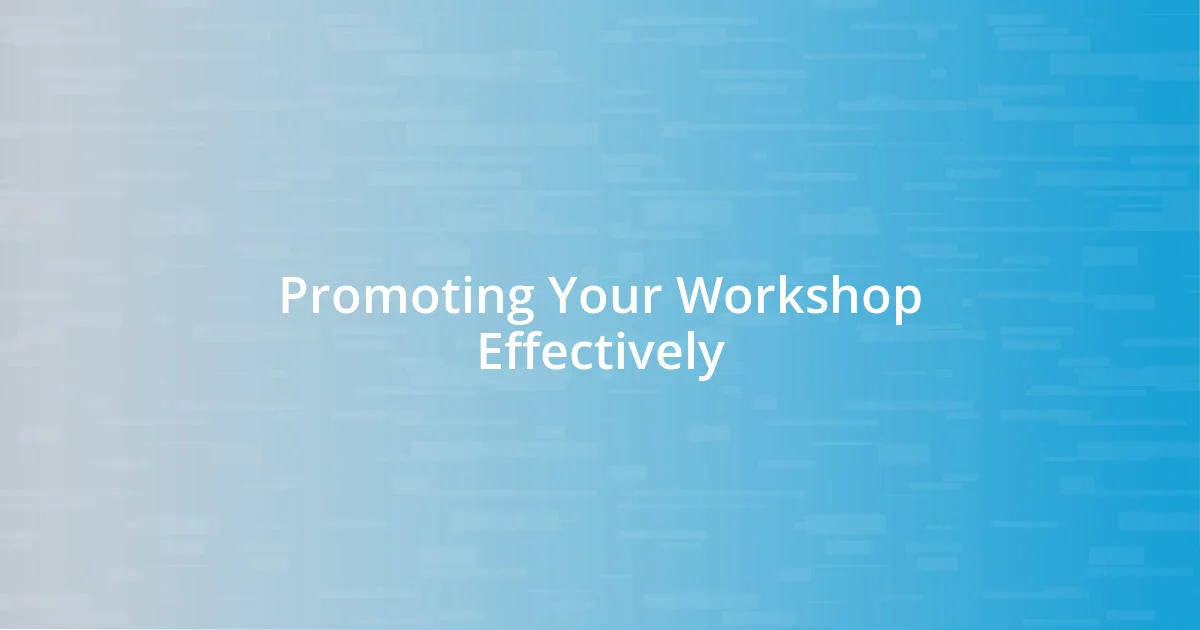
Promoting Your Workshop Effectively
Promoting your workshop effectively requires a multi-faceted approach, and I’ve learned that authenticity resonates deeply. For instance, when I first promoted a photography workshop, I shared my personal journey through social media—how photography transformed my perspective on life. This vulnerability attracted attendees who felt a real connection to my story, prompting them to sign up just to share a day with me. Have you ever noticed how storytelling can create that instant bond?
Utilizing local community boards and social media groups can be game-changers in your promotional strategy. I still remember posting about a workshop at a community center, and the response was overwhelming—it turned out to be just the right space to tap into. By engaging in local Facebook groups and even attending local meetups to share my plans, I built relationships with potential attendees and fellow organizers. It’s this grassroots connection that often translates into a fuller room and, more importantly, engaged participants who are genuinely interested in what you have to offer.
Don’t underestimate the power of word-of-mouth. After one workshop on sustainable living, I encouraged attendees to share their experiences online. Immediately, I began to see new registrations for my next workshop, all from those who were inspired by their friends’ posts. Building a network of advocates who believe in your cause can be more impactful than any advertisement. Have you ever noticed how recommendations from friends carry more weight than any promotional flyer? Create an environment where your attendees feel empowered to become your workshop’s biggest fans.
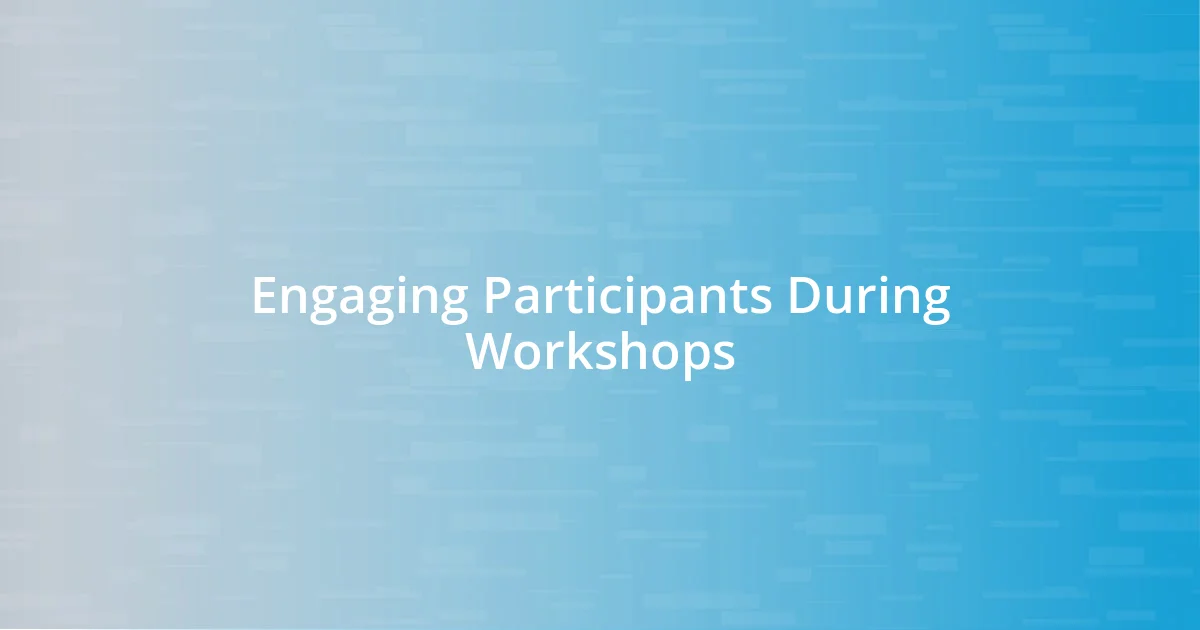
Engaging Participants During Workshops
Engaging participants during workshops isn’t just about the content; it’s about creating an interactive environment. For instance, I once facilitated a session where we used icebreaker games to encourage attendees to mingle. Watching strangers share laughs broke down barriers and transformed the atmosphere, so participants felt free to share their thoughts openly. Isn’t it fascinating how a simple game can transition into genuine connection?
Another method I embraced was encouraging participant-led discussions. During a recent workshop, I had my attendees share their real-life experiences related to the topic. This approach not only made the session more dynamic but also allowed participants to learn from one another. I remember the insights shared about overcoming creative blocks; it reminded me how valuable diverse perspectives can be. Have you ever had a moment when a colleague’s story suddenly sparked an idea for you?
Additionally, I discovered that incorporating hands-on activities significantly boosts engagement. In one workshop, we created vision boards, which encouraged a flow of creativity and personal storytelling. I saw participants discussing their dreams and aspirations while bonding over shared goals. This experiential learning was not only informative but also profoundly emotional, as we witnessed each other’s hopes unfold visually. Isn’t it amazing how engaging participants in tangible activities can lead to deeper connections?
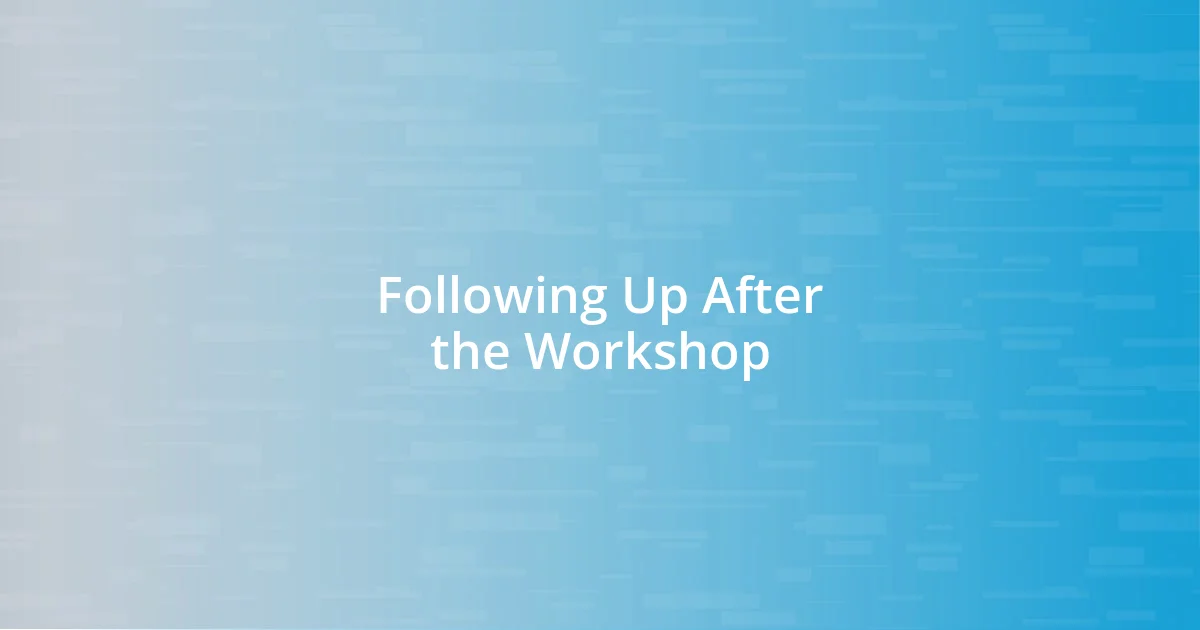
Following Up After the Workshop
Following up after a workshop is a pivotal step in nurturing relationships. I remember after one particularly inspiring writing workshop, I took the initiative to send a simple thank-you email to each participant, inviting them to share their thoughts and reflections. The responses were heartwarming—people opened up about their writing struggles, and I found myself in meaningful conversations that extended well beyond that single event. Isn’t it incredible how a small gesture can spark bigger connections?
I also discovered the power of creating a resource sharing platform post-workshop. After hosting a session on digital marketing, I set up a private Facebook group where attendees could continue discussions and share their progress. Watching the group come alive with questions, insights, and support felt like witnessing a community blossom. Have you ever experienced that sense of belonging when you realize everyone is on a similar journey?
Moreover, I took it a step further by scheduling one-on-one coffee chats with a few participants who showed exceptional enthusiasm about their projects. Those informal meet-ups revealed deeper layers of friendship and collaboration possibilities. Each conversation unearthed unique perspectives and ideas, and it was as if we were weaving our dreams together. How often do you take the opportunity to deepen those initial connections created in a workshop setting?
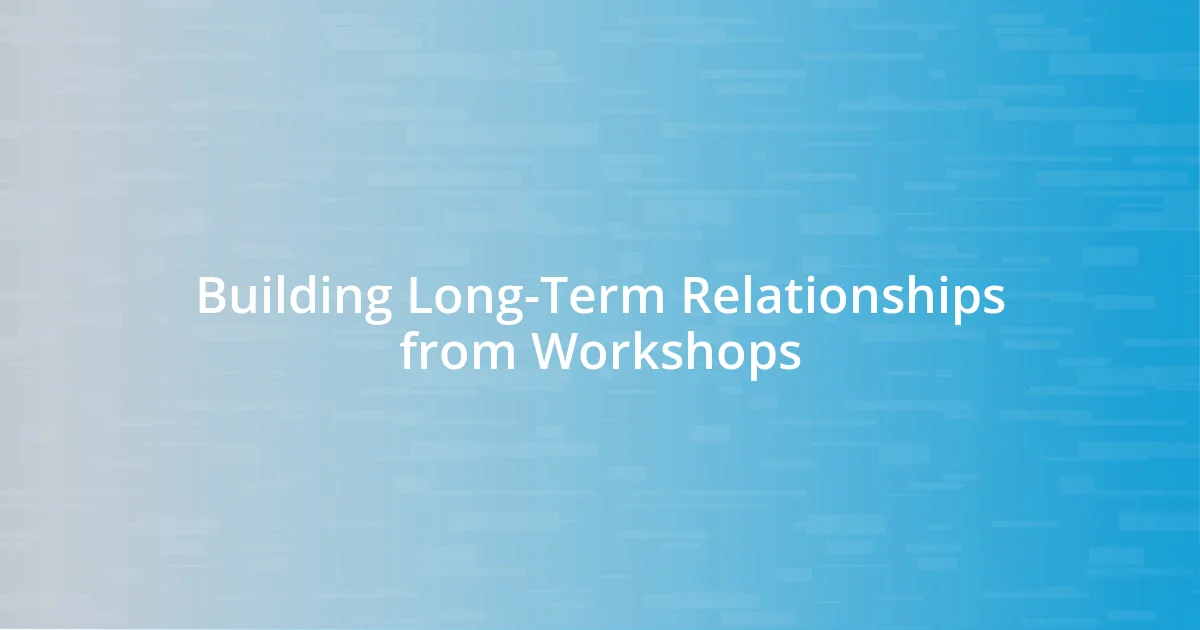
Building Long-Term Relationships from Workshops
Building long-term relationships through workshops is truly a transformative experience. I recall attending a photography workshop where the instructor encouraged us not only to share our pictures but also the stories behind them. This sharing session felt like opening a treasure chest of emotions and experiences. I realized that when people reveal their journeys, it creates a deeper bond that can lead to lifelong friendships. Have you ever felt that moment of connection when someone shares their story with you?
Another impactful method was organizing follow-up meet-ups, something I learned while hosting cooking workshops. I invited participants to gather and prepare a dish together, which not only revived the camaraderie built in the original session but also deepened our connections. As we diced vegetables and stirred pots, conversations flowed more freely. It’s remarkable how breaking bread can facilitate open dialogue and foster trust; isn’t it interesting how food can be a universal connector?
Moreover, I’ve found that engaging in collaborative projects post-workshop really strengthens ties. After facilitating a nonprofit leadership workshop, several participants and I decided to work together on a community outreach project. The mutual support and shared vision transformed our initial acquaintances into a dedicated team. It left me reflecting on how collaboration can extend beyond shared interests; it creates a shared purpose, don’t you think?





